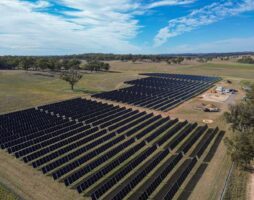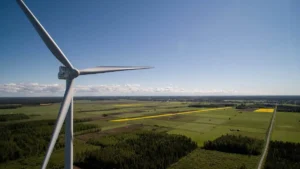The winning bidders for the ACT government’s $600,000 energy storage pilot program have been announced, with local companies SolarHub, ActewAGL Retail and ITP Renewables awarded $200,000 each to roll out subsidised battery storage systems to households in Canberra.
The Next Generation Energy Storage Pilot – which comes off the back of the ACT government’s latest round of large-scale wind and solar auctions – aims to give a push-start to battery storage to help make them more affordable for consumers, while also testing the market and providing valuable information on industry viability.

ACT minister for environment Simon Corbell said the three successful companies had been chosen through a competitive grants process, which drew “keen pricing” for the supply of batteries.
He said that with each company receiving $900 for each kW of sustained peak output the battery storage provides, the government expected approximately 200 battery systems to be installed. This would translate into a discount of around $2,700 for a battery storage system with constant 3kW output.
“We’ve always wanted to select a range of winning companies,” Corbell told reporters at the announcement on Friday, “because we need a diversity of operators in the market.
“They each offer slightly different products, and they’re each pitching to slightly different parts of the market.
“It’s great to have a diversity of Canberra-based companies engaged, and we’ll use to the pilot to identify barriers – regulatory barriers, technical barriers – that will need to be addressed for the further stages of the program.”
Corbell said the rollout of the battery systems would begin in the coming months, extending its reach to around 200 sites. He said the different companies would be looking at different areas in the Capital Territory.
ActewAGL Retail will install Panasonic batteries in Canberra households alongside energy monitoring systems, so the households can optimise their electricity consumption from either the grid, solar system or the battery.
ITP Renewables – which has experience in inspecting residential solar for the Clean Energy Regulator and connecting batteries to the ACT network – will install LG Chem batteries in households, with some commercial installations also targeted.
Solar installer SolarHub will offer Tesla Powerwall and LG Chem storage solutions to the residential market, including the network constrained area of Mologolo Valley.
SolarHub will also work with fellow Canberra start-up Reposit Power, and retailer Simply Energy, to allow households to sell electricity from their batteries back into the grid.
“We will not be waiting until the end of the pilot to rob out the next stage,” Corbell added. “We want to do it with a bit of overlap so that we really get some momentum in the rollout of batteries in this state.”
Indeed, the ACT government plans to support 36MW of energy storage to be rolled out across more than 5000 Canberra homes and businesses between 2016 and 2020.
“By committing to support battery storage in this early stage of its entry into the market we want to open the door for the ACT to lead research into high-penetration renewables and attract international and national companies and research leaders into this developing space,” Corbell said in an official statement.
“Locally distributed storage has a number of benefits, such as situations where it can be directed to specific locations to overcome network constraints and the avoidance of costly network investment.
“Getting involved with batteries at this early stage makes good business sense by encouraging start-ups and other industry participants to consider moving to the ACT where a concentration of industry know-how will make businesses more viable.”







